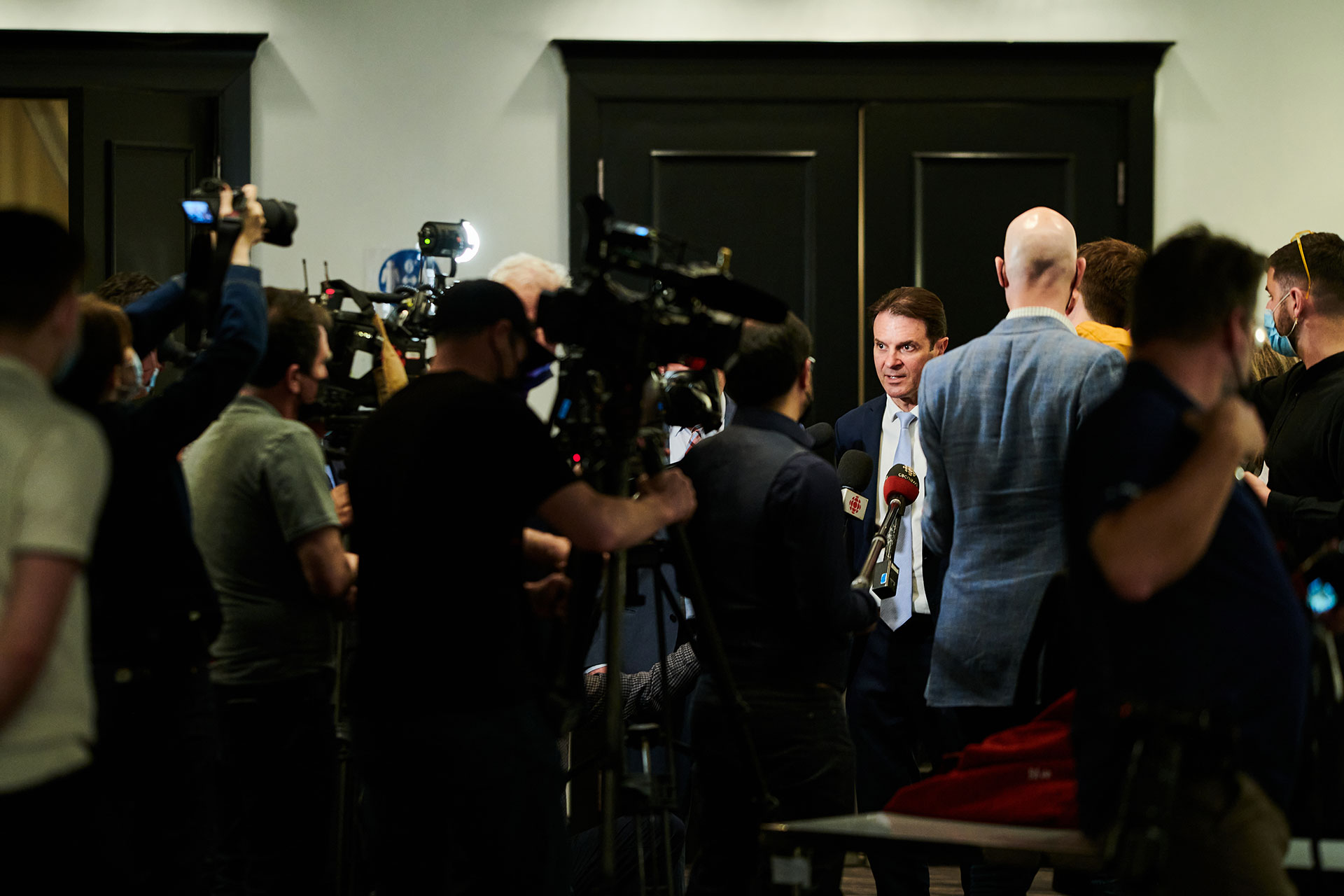
The real world can still be seen on TV
I never watch the news on budget day. It's certainly not for lack of interest: I look like a kid in front of a candy store when I'm waiting to go behind closed doors. And as I spend the next six hours stuffing my face with candy for public policy geeks, I get a little indigestion afterwards...
Strangely enough, this year has been an exception. Which allowed me to come face to face, alone in front of a hotel room TV, with my story of the week.
The Quebec family isn't sure what to make of the key measure announced by Quebec to help it cope with galloping inflation.
The message from Quebec families was disarmingly simple: they were waiting for "a miracle", even if this was said with a touch of irony by the single mother interviewed by Radio-Canada (see the report starting at 5:40 on TJ).
When she learned that she, like the vast majority of taxpayers, would receive $500, she didn't need to use any words (in fact, she didn't have any at all). You could see the dismay in her eyes, despite the sunglasses. You could see it through a procedural mask. And yet, PR case studies abound with examples of scathing responses, clips perfect for the small screen. But when it's a citizen who opens up, the impact is tenfold. Television still has that incredible power to bring people to life in the news. Even in the digital age. Even if we're talking numbers. Newspapers make decision-makers and experts talk. Social media "impose" on us those who invent themselves as experts. Radio has those moments when it lets us listen to the anger and frustrations of citizens.
But even today, it's television that has the power to show us things. To make us feel them. The proposed measure is not a trivial one, and is bound to provoke a reaction. Obviously, like any measure taken by a government, it has its good and bad points, and there's no escaping them. It's hard to blame the government for using a means that can be implemented so quickly and so simply, given the scale of the situation. Similarly, it's hard to blame the opposition for pointing out the measure's political opportunism or unfairness: it's clear that not all taxpayers have the same boat to ride out the storm.
But in the final analysis, it's the public who will be the judge, a few months before the elections, through their daily lives. Their daily life cannot be read. It can't be heard. It's lived. Some would say that Facebook lets us live it too. But never as much as on TV. Perhaps that's where my news of the week comes from. Even when we're talking about the economy and public finances, even in an increasingly digital environment, it's still TV that keeps us grounded with the real world, those for whom our governments draw up policies and budgets.